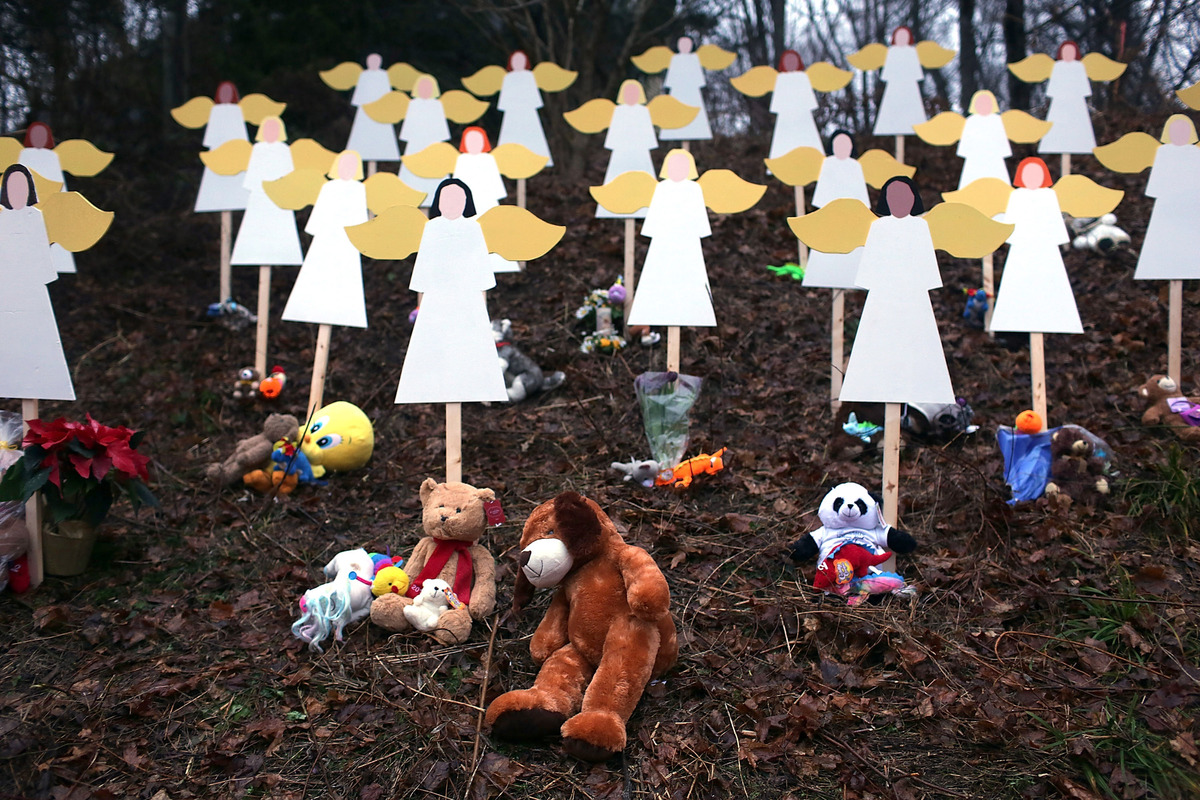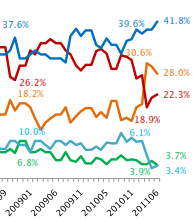
Gun Control: Marc Garneau proposes ban of assult weapons
Liberal Leadership candidate Marc Garneau said yesterday that there is no reason that assault rifles like the one used in the 20 school children massacre in Connecticut should be legal.
“There is absolutely no reason that anybody can vote to say that that kind of weapon, that can fire off great numbers of rounds like that, is necessary,” Garneau told The Canadian Press.
“That kind of weapon, to me, definitely — well, it is (already) a restricted weapon but one should look at not allowing those things.”
Gun control is the top of people’s minds these days as the most horrific mass shooting has occurred recently in Newtown, claiming the lives of 20 innocent children and 6 educators. Surprisingly, while the American gun lobby has stated that the solution to this problem is to give more people guns, Nanos Polling found that 76% of Americans are in favor of a gun registry and a clear majority would restrict who can access a gun (91% of Americans would ban usage for the mentally ill and felons) and under what circumstances (96% of Americans favor background checks). Additionally, an equal amount of Americans divide the debate on whether individual liberty (46%) or gun restriction (47%) take precedence.
The .223-calibre Bushmaster is a restricted gun in Canada but citizens can access the rifle on certain conditions:
- 18 years of age
- pass a restricted firearms safety course
- obtain a firearms licence and registration certificate
- licensed for use in target practice or target shooting competitions
- licensed for use as part of a gun collection
Garneau plans to limit the accessibility of this particular rifle and other similar rifles by “putting them out of circulation, not allowing them to be used.” On top of this, a Garneau-lead Liberal Government would implement “very severe” penalties on those who use these weapons to commit crimes.
Canada’s gun registry was scrapped on the basis that it was becoming costly, didn’t prevent gun crimes, and could be by-passed. Marc Garneau announced that he would not try to revive the registry – taking the same line as perceived front runner Justin Trudeau whom as well declared that he would leave the registry in its dead state.
This brings us to an interesting discussion point: how should Canada deal with gun crimes, particularly massacres like those that happened at the Universite de Montreal?
Before the Newtown massacre, there was the Scotland massacre of 16 kindergarten students in 1996. The horrendous act led to a ban on fire arms and the country’s gun crimes have since dropped significantly.
Then there is the idea of a gun registry that Canada has tried. It became a divisive topic where we arguably had an extensively bureaucratic system which collected insufficient information and racked up large operating costs. The system also, by nature, had no power or ability to prevent gun crimes. Instead, it gave authorities a leg up on gun crimes with legitimate weapons to find criminals and restrict those who were unfit to own a gun. Could a gun registry designed and implemented differently work better for Canada in the future? Possibly, but surely when Americans discuss their own registry, they won’t be taking our old one as an example.
Then there is the Gun lobby’s proposal: more guns. Clearly, their argument is that the shooter and other gun-based crimes could have been prevented by a standoff but surely children will be safe having the possession of guns and surely they’ll be even safer in the crossfire of a gun-related conflict. CNN commentator Piers Morgan came out in clear opposition to the gun lobby’s claim, rightfully asking: “how many more kids have to die?”
“There are nearly 12,000 murders a year from guns in this country. When are you guys going to focus on that, and stop telling me the answer is more guns? It is not the answer! How many more kids have to die, before you guys say, ‘we want less guns, not more?'”
Piers Morgan, CNN
And of course it is always worth looking at the stats. Currently, Canada has the third highest rate of gun crimes in the G8. Just take a good look at Toronto for a spike in gun crimes this year, shortly after the gun registry was abolished.
What path should Canada take on gun crimes? What do you think of Marc Garneau’s proposal to ban assault rifles?





